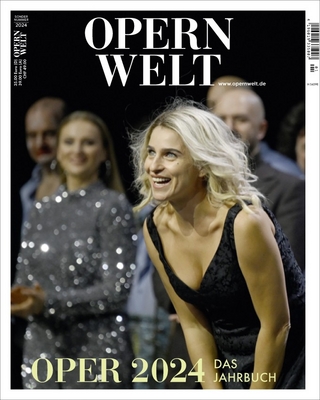
In the Process of Becoming
Oxford University Press Inc (Verlag)
978-0-19-025818-4 (ISBN)
A critical assessment of Dahlhaus's preoccupation with the opening of Beethoven's "Tempest" Sonata serves as the author's starting point for the translation of philosophical ideas into music-analytical terms-ones that encourage listening "both forward and backward," as Adorno has recommended. Thanks to the ever-growing familiarity of late eighteenth-century audiences with formal conventions, composers could increasingly trust that performers and listeners would be responsive to striking formal transformations. The author's analytic method strives to capture the dynamic, quasi-narrative nature of such transformations, rather than only their end results. This experiential approach to the perception of form invites listeners and especially performers to participate in the interpretation of processes by which, for example, a brooding introduction-like opening must inevitably become the essential main theme in Schubert's Sonata, Op. 42, or in which tremendous formal expansions in movements by Mendelssohn offer a dazzling opportunity for multiple retrospective reinterpretations. Above all, In the Process of Becoming proposes new ways of hearing beloved works of the romantic generation as representative of their striving for novel, intensely self-reflective modes of communication.
Janet Schmalfeldt is Associate Professor of Music Theory at Tufts University. She has taught at McGill University and at Yale, where she was awarded the Clauss Prize for Teaching Excellence in the Humanities in 1993. She is the author of Berg's "Wozzeck": Harmonic Language and Dramatic Design and of numerous articles. In 1997-99, she served as President of the Society for Music Theory. Her performances in the role of pianist have included solo, concerto, and chamber music.
Preface
Chapter 1 Introduction: The Idea of Musical Form as Process
Chapter 2 The Beethoven-Hegelian Tradition and the "Tempest" Sonata
- Formation of the Tradition
- Dahlhaus and the "Tempest" Sonata
- Post-Dahlhausian Critiques
- The question of a secondary theme
- Introduction or main theme
- ST2 and the final cadence of the exposition
Chapter 3 The Processual Legacy of the Late Eighteenth Century
- Haydn-String Quartet in C Major, Op. 33, No. 3 (Hob. III:39), first movement
- Haydn-Piano Trio in C Major (Hob. XV:27), finale
- Clementi-Piano Sonata in F Minor, Op. 13, No. 6, first movement
- Mozart-Le nozze di Figaro, Act I, No. 7, Trio in B-flat
Chapter 4 Beethoven's "Bridgetower" Sonata, Op. 47
Chapter 5 On Performance, Analysis, and Schubert
- Schubert-Piano Sonata in A Minor, Op. 42, D. 845
Chapter 6 Music that Turns Inward: New Roles for Interior Movements and Secondary Themes
- Schubert-Allegro in A Minor for Four Hands, "Lebensstürme," D. 947
- Schubert-Piano Trio in E-flat Major, Op. 100, D. 929
Chapter 7 Mendelssohn the "Mozartean"
- String Quartet in A Minor, Op. 13: opening of the finale
- The Piano Trio in D Minor, Op. 49, first movement: opening of the exposition
- The Octet, Op. 20
- The finale
- The opening of the first movement
- More on Mendelssohn's codas: Overture to Midsummer Night's Dream and the Scherzo of the D-minor Piano Trio
Chapter 8 sed non eodem modo: Chopin's Ascending-Thirds Progression and his Cello Sonata, Op. 65
- Overview with respect to Chopin's genres
- First movement of the Cello Sonata: Allegro moderato
-Third movement of the Cello Sonata: Largo
Chapter 9 Coming Home
- Robert Schumann-"Mondnacht," from Liederkreis, Op. 39
- Robert Schumann-"Widmung," from Myrthen, Op. 25
- Clara Schumann-"Die stille Lotosblume," Op. 13, No. 6
- Robert Schumann-Arabeske, Op. 18
- Robert Schumann-Fantasie, Op. 17
Notes
Bibliography
Index
| Erscheinungsdatum | 11.03.2017 |
|---|---|
| Reihe/Serie | Oxford Studies in Music Theory |
| Verlagsort | New York |
| Sprache | englisch |
| Maße | 152 x 231 mm |
| Gewicht | 499 g |
| Themenwelt | Kunst / Musik / Theater ► Musik ► Klassik / Oper / Musical |
| Kunst / Musik / Theater ► Musik ► Musiktheorie / Musiklehre | |
| Geisteswissenschaften ► Philosophie | |
| ISBN-10 | 0-19-025818-7 / 0190258187 |
| ISBN-13 | 978-0-19-025818-4 / 9780190258184 |
| Zustand | Neuware |
| Informationen gemäß Produktsicherheitsverordnung (GPSR) | |
| Haben Sie eine Frage zum Produkt? |
aus dem Bereich


